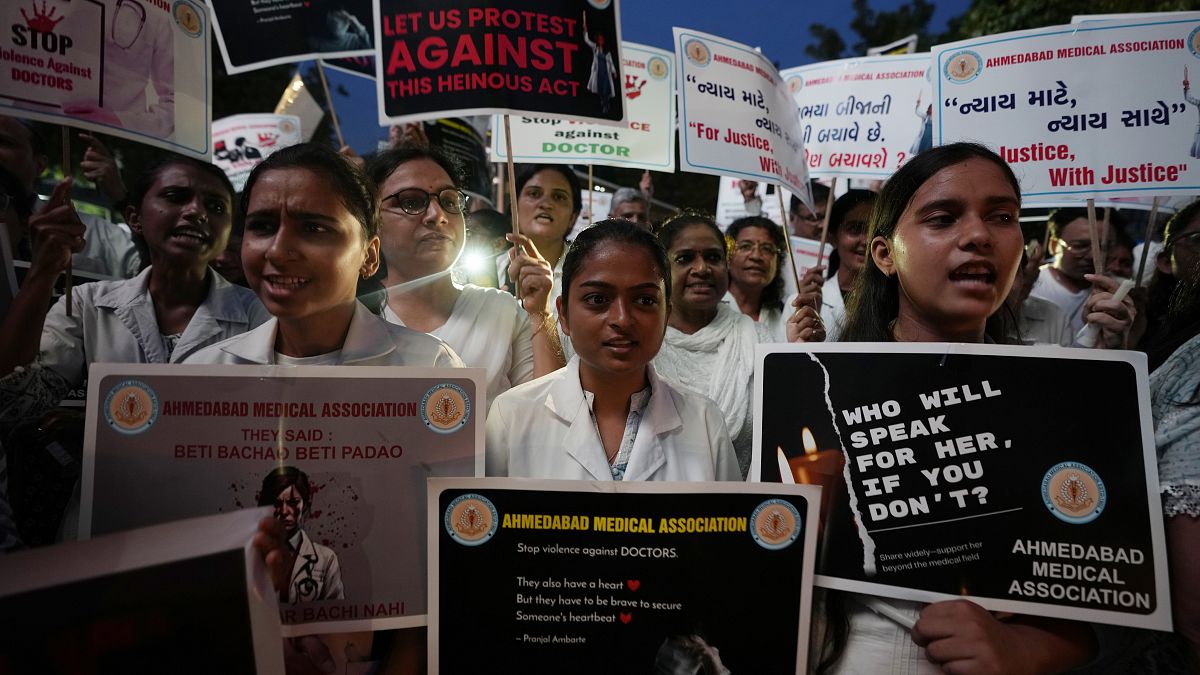The recent tragic incident involving the rape and murder of a 31-year-old trainee doctor at R.G. Kar Medical College in West Bengal has sparked outrage and protests across India. The victim’s family alleges that it was a gang rape, and a police volunteer has been detained in connection with the crime. The Indian Medical Association has called for a nationwide strike to demand justice and safer working conditions for medical workers, especially women.
Doctor Tripti Sharan highlighted the simmering anger among healthcare workers, especially women, who feel they are not being treated with respect by the public, media, and government. The protests have drawn thousands of people, with demands for improved safety measures in workplaces. The lack of duty rooms and questionable safety conditions for women have been major concerns raised by the protesters.
The discovery of the trainee doctor’s body in Kolkata has shaken the faith of many in the system. The victim’s family insists that it was a gang rape involving more people, and an autopsy confirmed sexual assault. The involvement of federal investigators, due to accusations of mishandling the case by state officials, underscores the seriousness of the situation. Doctor Shalini Pandey emphasized the need to change mindsets from the grassroots level to address the issue of sexual violence against women in India.
The statistics on rape in India are alarming, with a 20% increase in reported cases in 2022 compared to the previous year. The National Crime Records Bureau recorded 31,516 reports of rape, indicating the pervasive nature of sexual violence in the country. The case at R.G. Kar Medical College has once again brought attention to the need for stricter laws, better enforcement, and a cultural shift towards respecting women and providing a safe environment for all.
The protests and strike by medical workers are a reflection of the deep-rooted frustration and anger over the lack of respect and safety in their workplaces. The demands for better working conditions and stricter measures to protect women highlight the urgent need for reform in the healthcare sector and society as a whole. The collective voice of healthcare workers and women across India is calling for justice, accountability, and lasting change to prevent such tragedies from happening again.
The tragic incident in West Bengal has ignited a national conversation on gender-based violence, respect for women, and the urgent need for systemic changes to ensure safety and equality for all. The outpouring of support for the victim, the demands for justice, and the calls for reform reflect a society that is no longer willing to tolerate violence against women. The momentum from the protests and strike is a powerful reminder of the collective strength and resilience of the Indian people in the fight against sexual violence and injustice.










